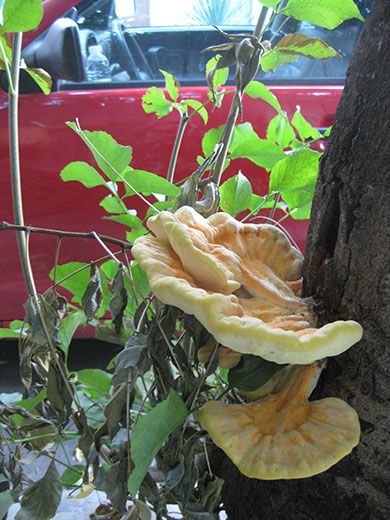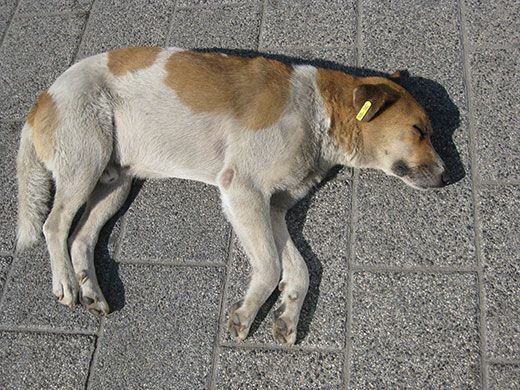How to Recover From Two Bike Spills
Plovdiv is studded with rocky hills and features mosques, art galleries, parks, museums, neutered dogs, bridges, a cherished old town and a Roman stadium
/https://tf-cmsv2-smithsonianmag-media.s3.amazonaws.com/filer/20110920065013OTR-red-foxes-470.jpg)
Upon arrival in Sofia, Bulgaria, I had a frantic few hours as I raced from ATM to ATM, each of which rejected my card. I had 7 leva in my pocket—about five bucks—and a room to pay for, and I hadn’t eaten since San Francisco International Airport. An adventure of destitution and hunger was unfurling—until my bank corrected the problem; late in the evening I ran out to an ATM, which gurgled, burped, and spat out 300 leva. Adventure over.
The dogs have been lazy and quite disappointing. They lie amid flies and trash, under trees and in alleyways, and those that give chase put no heart into it, turning tail if I only look their direction. A campaign to reduce their numbers is underway in urban areas, and many strays sport yellow ear tags indicating they’ve been vaccinated against rabies and neutered.
I’ll never cease to be amazed at how several hours on a bike can so dramatically transform the landscape. By my second afternoon in Bulgaria, I was huffing my way up a set of steep switchbacks in the pine country of the Rila Mountains, where I camped in a clearing about five miles uphill from the town of Sapareva Banya. Here, a fox stole my only pair of socks. The following day I ascended higher still—past Panichishte, past the tourist lodges, past the lines of weekenders waiting to ride the ski lift to the acclaimed Seven Lakes, which are being loved to death, and finally to the end of the asphalt and into the wilderness. I crested the pass at a wide alpine meadow of tall green grass, wildflowers and acres of brilliant raspberries—and a view of the mightiest peaks in the Balkans. I would have stopped for a picnic if I’d had something to eat.

On the descent I spilled, skinning my right hand as I sprawled headlong down the steep gravelly road. Not five minutes later I badly skinned my left hand and elbow. By now, I was torn and shredded pretty well symmetrically, and I was content not to crash anymore that morning, so I walked the last mile to the valley floor and dug the gravel from my flesh by a cool stream.
I also yanked my left calf muscle and pulled my right Achilles tendon as I flew off my bike, leaving me rather unfit for any mountain travel at the moment—all of which has brought me, unexpectedly, to the low-lying, historical little river town of Plovdiv. It is quiet here and smartly designed for pedestrians. Plovdiv is studded with rocky hills and features mosques, art galleries, parks, museums, neutered dogs, bridges, a cherished “old town” and even a half-buried stadium from the Roman era.
Just above the excavation site, on Sahat Tepe, the hill of the clock tower, I found a young chicken-of-the-woods growing from a tree stump. With my pocket knife I sliced off the fluorescent yellow shelf fungus, added it to my dinner sack and packed it back to the Hostel Mostel.
I’m otherwise feeding myself from produce stands and fruit trees—the truest form of eating local cuisine that I know. Fig trees are the most economical source of calories here (though the leading local variety is a rather bland and mediocre brown fig about the size of a large marble) and grocery stores are a close second. Last night, for instance, I came home with a melon, several brilliant tomatoes, a pound of fresh cheese, some carrots and a bottle of Bulgarian Chardonnay for all of 7 leva.

The women of Bulgaria, near as I can tell, stay trim by eating ice cream cones and smoking cigarettes. The hulking men, though, pump iron. To explore this Plovdivian subculture, I visited a local gym yesterday. Men with the bellies and biceps of Olympian weightlifters moved metric tons of lead, grunting and roaring so loudly that their voices echoed out the window, down the cobblestone street, and across the worksite of the Roman stadium. One tubby shirtless fellow lifted free weights with a cigarette tucked neatly behind his ear—a reminder that this is Eastern Europe.
Outside, the crowds convened on the Knyaz Aleksandâr boulevard, strolling and lazing at the pleasant pace of the Plovdivians. The sun sank and the cool evening breeze brought refreshment after the long, sweltering day, and I stretched out in the grass of a pubic park. The Rhodope Mounains loomed broadly on the southern horizon, and I was almost glad that I wasn’t there, camped in a meadow, on a bed of soft wild grass, under a sea of stars.
Planning Your Next Trip?
Explore great travel deals
Smithsonian magazine participates in affiliate link advertising programs. If you purchase an item through these links, we receive a commission.
/https://tf-cmsv2-smithsonianmag-media.s3.amazonaws.com/accounts/headshot/Off-Road-alastair-bland-240.jpg)
/https://tf-cmsv2-smithsonianmag-media.s3.amazonaws.com/accounts/headshot/Off-Road-alastair-bland-240.jpg)